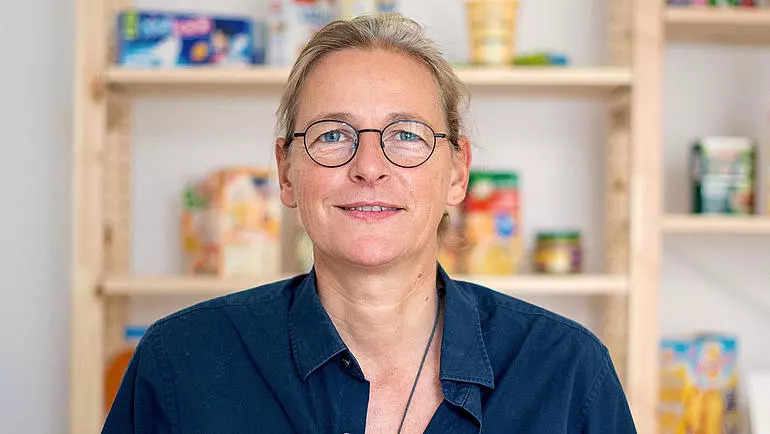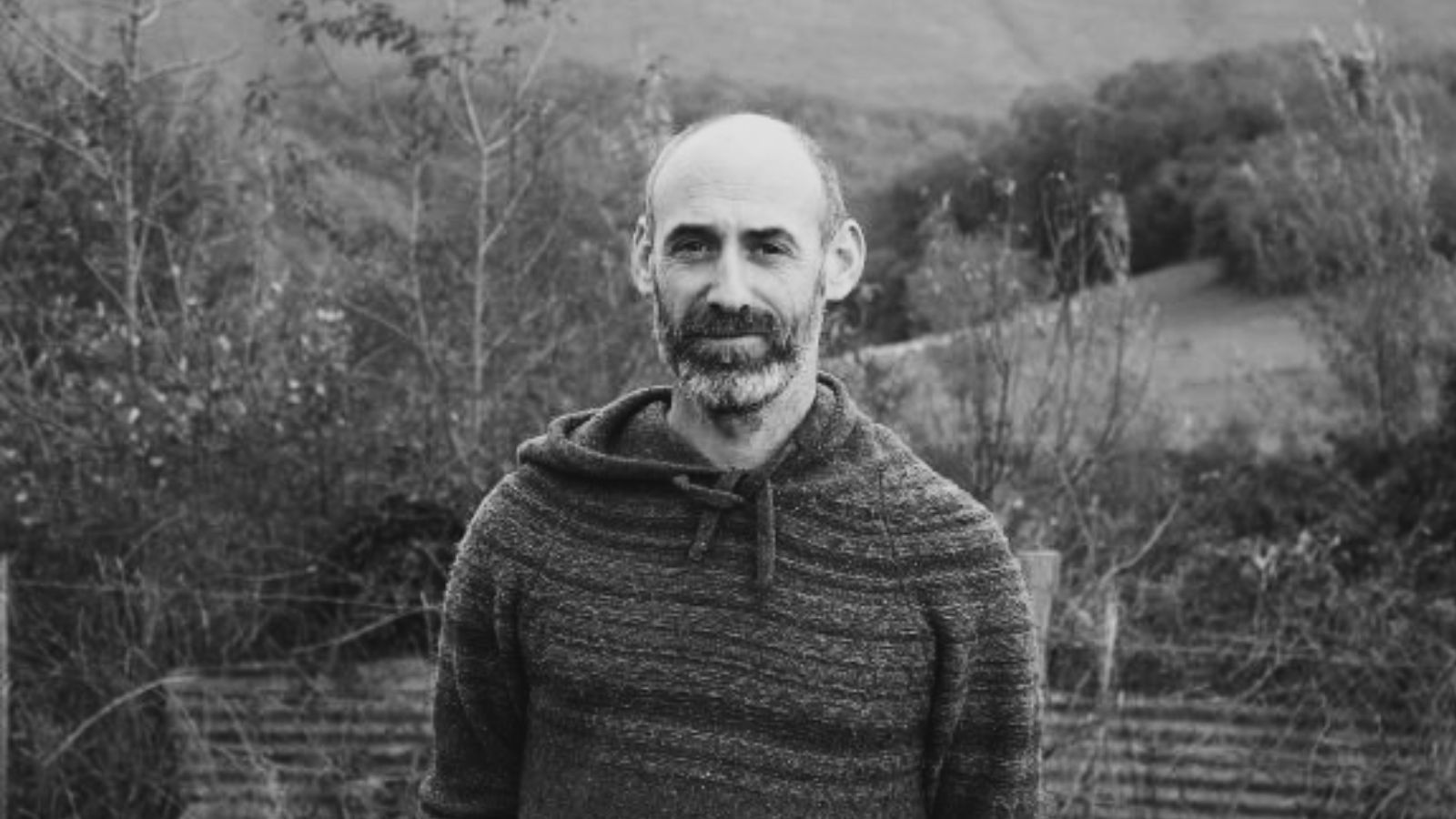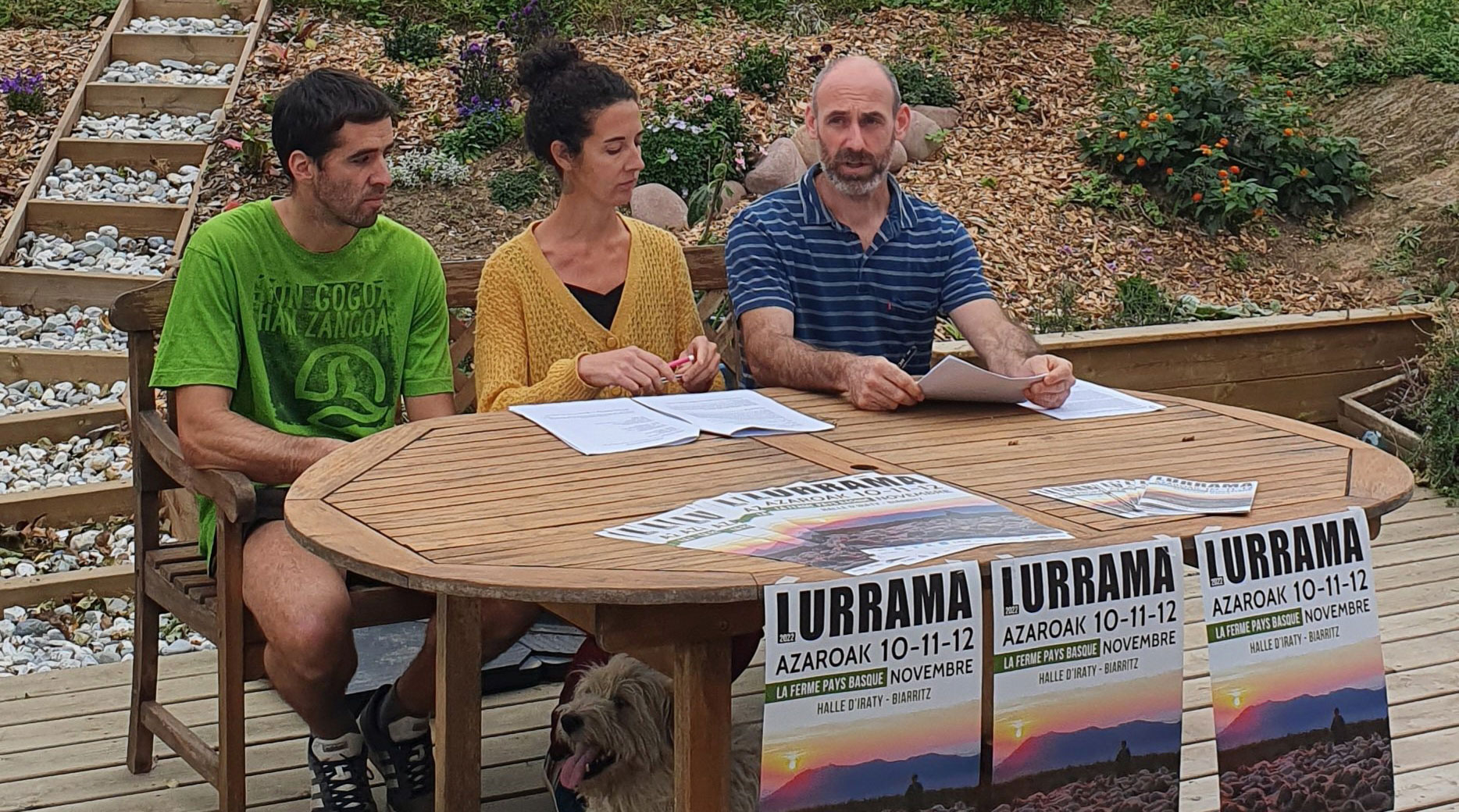"Current food and agriculture systems do not make us autonomous"
- Karine Jacquemart, director of the French association Foodwatch, will be at the Lurrama trade show, a quote dedicated to sustainable and popular agriculture. With the aim of guaranteeing the right to food for all citizens, various actions are being carried out – public mobilisations, pressure work on the political authorities, complaints about agro-industrial initiatives, etc. Lurrama will start on 8 November and will continue throughout the weekend in the village of Biarritz. He will offer a talk on Saturday at 17:00 under the title "Food, a political history that is repeated every day".

You're militating for the right to food. At a global or local level, where is it played?
At all levels. At world level, because of the globalisation of trade and financial exchanges and because some multinationals control the entire parts of the agri-food chain, from seeds to food distribution. But it is clear that there is also a need for action at local level. Foodwatch is a fully independent European NGO operating in five countries (France, Germany, the Netherlands, Austria, Belgium). There is no doubt: The scale of Europe is also fundamental. Europe can and must better protect the right to have healthy and cheap food for all. It has important tasks and Europe is an appropriate scale for establishing common standards and protective measures. For example, setting the limit on the amount of sugar in cereals, discarding additives dangerous to health or the environment, banning certain pesticides, banning the import of fraudulent products or products derived from deforestation... All this is decided by the European Commission.
It is problematic that agriculture should be placed in free trade agreements. Everything that is decided on in the financial markets is problematic.
As a result of these agreements, the quantities of agricultural products and foodstuffs imported into the EU are increased, which has a social and ecological impact, both in the producer countries and in our own countries. The EB-Mercosur treaty, known as Cars in exchange for cattle, also has to talk about GMO soya and deforestation. These high import quotas are even more serious, as health and environmental standards are not the same in importing and exporting countries. For example, Canada continues to use antibiotics to promote growth and certain animal flours, although they are banned in Europe. Canada uses 42 pesticide molecules banned in Europe and Brazil authorizes several dozen more. Another very serious threat is that the common logic of these conventions is to attack the regulations for the protection of the population and of the planet in order to give increasing priority to the multinationals.
"There are much better alternatives to our health, which are viable to take maximum care of biodiversity and farmers. These models are based on the principles of agroecology"
How can we guarantee the right to food in this context?
In fact, it should be simple: to the extent that it is a right, it would need measures to be targeted at all. Of course, all farmers should live with dignity in their activities. In addition, support should be provided for a transition towards land, biodiversity and health friendly agriculture. But on the contrary, we are an agro-industrial model that advances thanks to public money, because we know that it is dangerous to us and that it takes the peasants against the wall. But ... The problem is that today our agri-food system is locked up. One in five farmers lives in poverty and millions of people are in food insecurity. Frankly, the current food and agriculture systems do not make us autonomous. Furthermore, it should not be forgotten that the same people are driving this system and present it as an "administrative burden" and an "obstacle" to the conservation of nature, soil and biodiversity. Certain food industry giants – Lactalis, Nestlé, Ferrero, Mondelez, Unilever, etc. – control the market and only large distributors account for 80% of the market.
Can we not, then, guarantee this right?
There are much better alternatives to our health, which are viable to take maximum care of biodiversity and farmers. These models are based on principles of agroecology: not very addictive and in line with nature; that is, more autonomous and more resilient. On the other hand, at local level, numerous alternatives are being developed for access to quality food: social and solidarity food shops, initiatives such as the Vrac France for precarious neighbourhoods and, above all, the proposal of the Social Security for Food.
What is Food Social Security?
Its aim is to facilitate access to the food guarantee and, on the basis of a contribution model similar to that of Social Security, it is a question of proposing universal food aid. Each member receives a monthly amount for the purchase of food from the network of shops or producers democratically elected by the group. It is very encouraging! As for the French State, it has been experienced in some thirty places.
Following the mad cow scandal, Foodwatch, former director of Thilo Bode Greenpeace, was founded in 2002 with the aim of creating a powerful international organisation for food control. What is the assessment of this counter-citizen?
We are an independent structure, fully within the reach of citizens and that is our strength. This protection makes it possible to clarify the abuses of the agri-food industry and distributors, to encourage political authorities to improve regulations for better protection of information rights, health and environmental protection. We have achieved some victories and we are also keen to keep fighting.
Do you have reason to remain optimistic?
What makes me optimistic is action: we cannot let equals do whatever they want, and I am convinced that together we can produce change. But to do so we need everyone’s participation. Together, we will never give up.
.jpg)
Ostegun arratsean abiatu da Lurrama, Bidarteko Estian egin den mahai-inguru batekin. Bertan, Korsika eta Euskal Herriaren bilakaera instituzionala jorratu dute. Besteak beste, Peio Dufau diputatua eta Jean René Etxegarai, Euskal Hirigune Elkargoko lehendakaria, bertan... [+]
Emazteek laborantzan leku garrantzitsua izanik ere, ainitzetan gizonen itzalean izan dira. Hori aldatu nahian, emazteak erdigunean ezarriko dituzte aurten Lurraman.
"Emazte Laborariak Argitan" izanen da aurtengo Lurramaren leloa. 27 emazte laborari agertzen dira afixan. Haien rolak, engaiamenduak, eskumenak eta berezitasunak azpimarratuko dituzte heldu den azaroaren 10, 11 eta 12an, Miarritzeko Irati gelan.
Lurrama, laborantzaren saloina Miarritzeko Irati gelara itzuliko da aurten baina kasu, ostegunetik larunbatera iraganen da 17. edizioa. "Mendiguneak bizirik!" hautatu dute lema gisa eta Pirinio inguruko laborariak gomitatuak dira.
The buyer will not end up buying the house and land of Arbona. It has had to give way to the members of ELB and Lurzaindia and the associated citizens. The occupation continues, because the seller continues with the hunger of EUR 3 million and because pressure, force, solidarity... [+]
The buyer will not finally buy the estate and the house of Arbona. It has had to give way to the members of ELB and Lurzaindia and to the people together. The occupation continues, as the seller is still hungry for EUR 3 million and at the negotiating stage the pressure,... [+]
Ekimen gehienak bezala, Lurrama ere ezeztatu behar izan dute aurten. Baina zer nolako ondorioak utziko ditu horrek Lurrama elkartean eta Euskal Herriko Laborantza Ganberan?
"Biharko mundua, gaurko hautua" lemapean egingo dute Lurrama aurten, azaroaren 12tik 15era, Miarritzetik atera eta Ipar Euskal Herriko xoko ezberdinetan ekimen ezberdinak eskainiz.





















